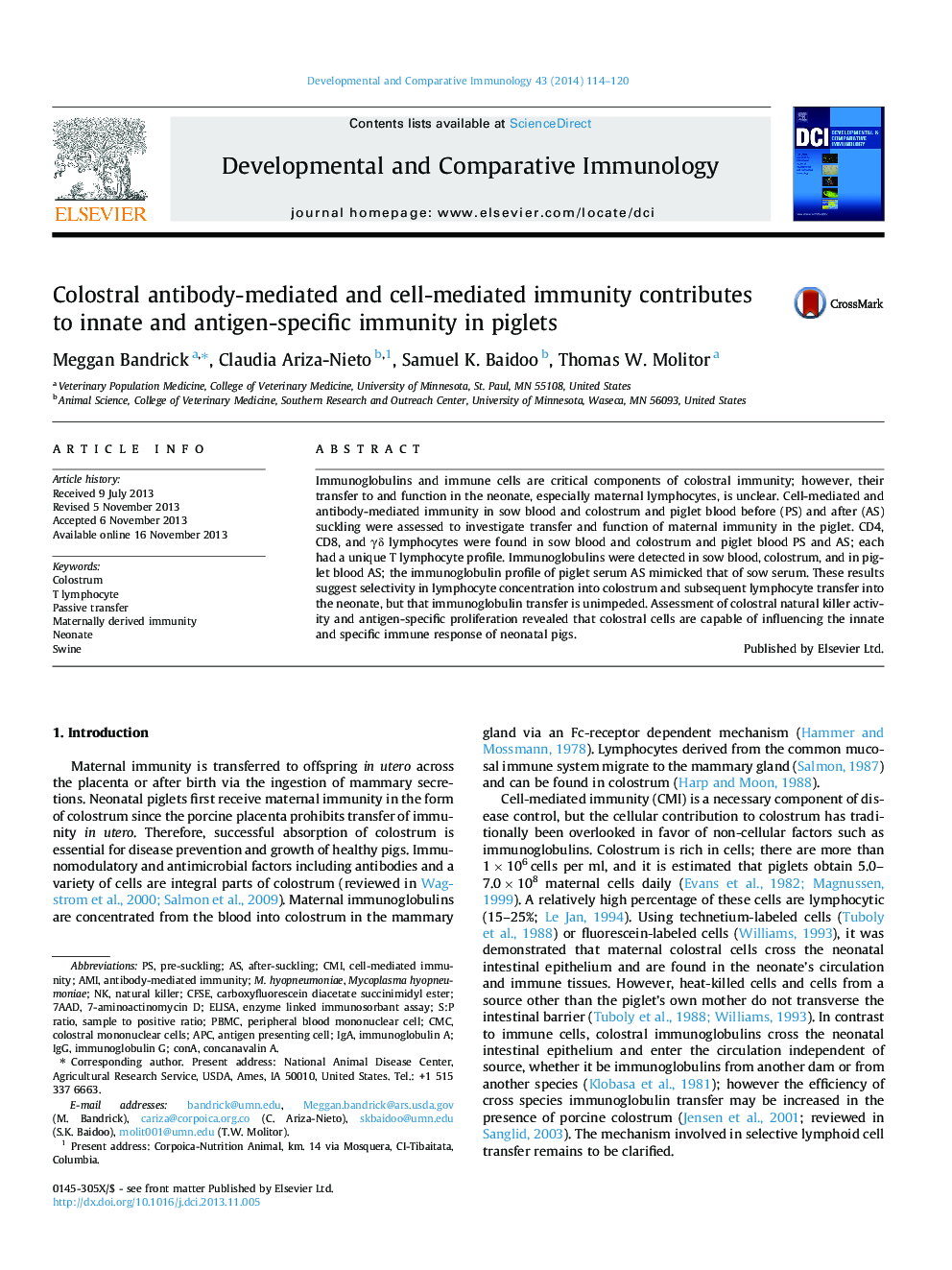| Article ID | Journal | Published Year | Pages | File Type |
|---|---|---|---|---|
| 10971452 | Developmental & Comparative Immunology | 2014 | 7 Pages |
Abstract
Immunoglobulins and immune cells are critical components of colostral immunity; however, their transfer to and function in the neonate, especially maternal lymphocytes, is unclear. Cell-mediated and antibody-mediated immunity in sow blood and colostrum and piglet blood before (PS) and after (AS) suckling were assessed to investigate transfer and function of maternal immunity in the piglet. CD4, CD8, and γδ lymphocytes were found in sow blood and colostrum and piglet blood PS and AS; each had a unique T lymphocyte profile. Immunoglobulins were detected in sow blood, colostrum, and in piglet blood AS; the immunoglobulin profile of piglet serum AS mimicked that of sow serum. These results suggest selectivity in lymphocyte concentration into colostrum and subsequent lymphocyte transfer into the neonate, but that immunoglobulin transfer is unimpeded. Assessment of colostral natural killer activity and antigen-specific proliferation revealed that colostral cells are capable of influencing the innate and specific immune response of neonatal pigs.
Keywords
CMCM. hyopneumoniae7-aminoactinomycin D7AADMycoplasma hyopneumoniaeConACFSECMIAPCPBMCIgGConcanavalin Anatural killerAmIenzyme linked immunosorbant assayPassive transferAntibody-mediated immunityCell-mediated immunityimmunoglobulin Aimmunoglobulin GIgAELISASwinePeripheral blood mononuclear cellantigen presenting cellT lymphocyteNeonatecarboxyfluorescein diacetate succinimidyl esterColostrum
Related Topics
Life Sciences
Biochemistry, Genetics and Molecular Biology
Developmental Biology
Authors
Meggan Bandrick, Claudia Ariza-Nieto, Samuel K. Baidoo, Thomas W. Molitor,
